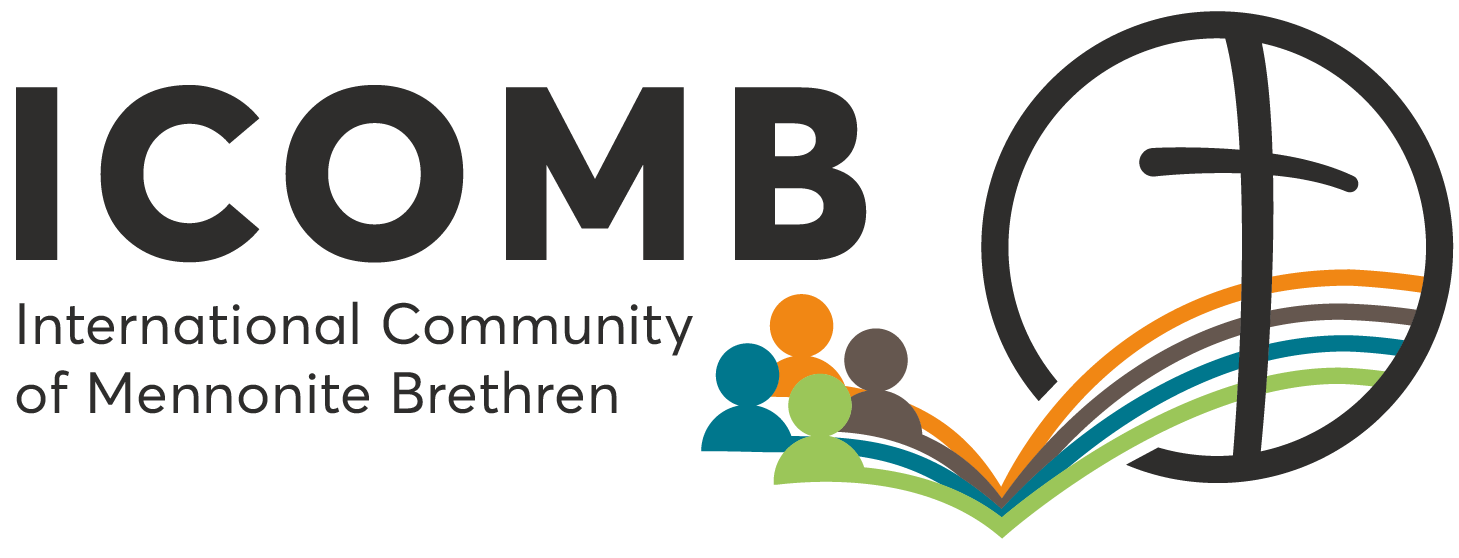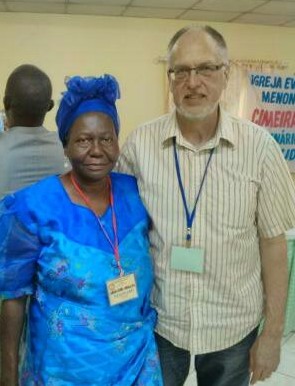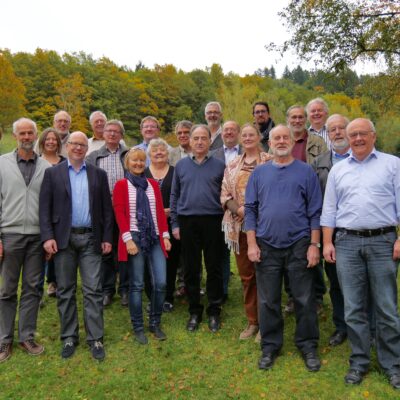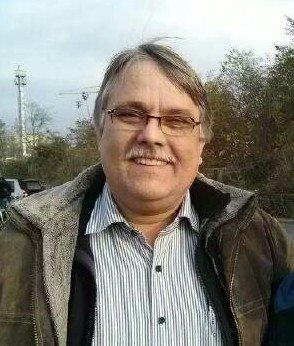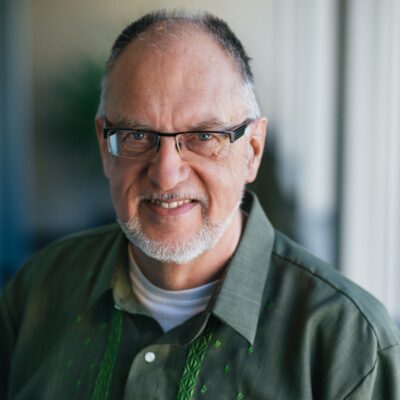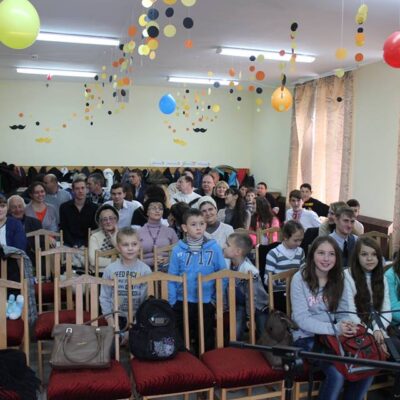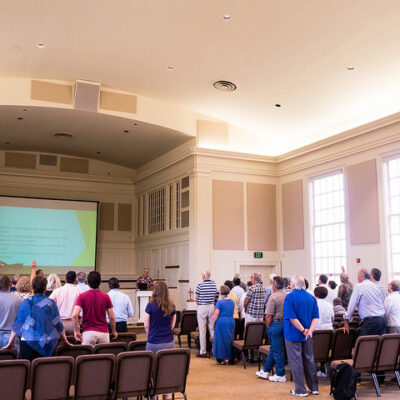This article was previously published in Direction and is used with permission: Randy Wollf, “Community Discernment for Making Major Group Decisions,” Direction 50, no.1 (Spring 2021): 85-96. https://directionjournal.org/50/1/community-discernment-for-making-major.html
As someone with a strong interest in leadership that is shaped by the Bible’s teachings, I am intrigued by how Christian leaders might apply a community approach to making major group decisions. What can communal discernment processes look like for denominations, local churches, and Christian non-profit organizations? In this article, I will describe several principles and associated practices that I believe are important for discerning God’s plans together. Before doing so, I will share three important assumptions that undergird the entire approach.
We need to embrace complexity and chaos long enough to begin to see how God might be leading us forward.
The ways in which God provides wisdom are a key consideration in how we as church leaders discern God’s will together. Some people take a narrow view in which God speaks primarily as we, his people, quietly and prayerfully wait on him. Others contend that God also speaks through conversations, through our weighing several options, and through strategic thinking. My first assumption is that God speaks in many different ways. The key is to position ourselves so that we are in tune with these different forms of communication and measure what we hear against Scripture. In addition, God has already entrusted a certain {86} amount of wisdom to each of us. In some cases, it may not be so much God giving us new insight as God helping us apply the wisdom he has already given us.
Second, even though I strongly believe that a communal approach to making group decisions is biblical, I fully acknowledge that God sometimes entrusts messages about a group’s direction exclusively to one person or a small group of people. However, even when this happens, those who think they have heard from the Lord would do well to humbly test their perceptions with others. I also recognize that there are situations when widespread collaboration is undesirable, and a more directive approach to decision-making may be preferable.
Third, a community process for discerning direction will look different from culture to culture and group to group. Even though I hope that the principles in this article are useful for all groups, I realize my background and personality tilt this community discernment process toward my preferences. Thankfully, many people from various cultures and situations have critically addressed this approach and have strengthened it over the years. This should make it more applicable across the board.
Keeping these underlying assumptions firmly in mind, let us look at five principles for engaging in a community discernment approach when making major group decisions.
1. ENCOURAGE PERSONAL GROWTH AMONG DECISION-MAKERS
What people bring into a decision-making forum will influence the quality of their contributions. In another article I have explored six key growth areas for leaders who want to grow in their leadership effectiveness: (1) growing a deeper relationship with God, (2) developing godly character, (3) discerning personal calling, (4) growing deep communities, (5) building healthy teams, and (6) strengthening skills. 1 How does growth in these practices make leaders and group members more effective in making major group decisions?
The foundation for becoming wiser is a growing relationship with God. A “Rule of Life,” which is an intentional plan for strengthening our relationship with God, can help us more consistently make wise decisions. Like a trellis that helps a grape vine grow strong and bear fruit, a Rule of Life provides the necessary structure and support for us to grow in Christ and bear fruit, like wisdom. According to James 3:17, the wisdom that comes from above is “first of all pure; then peace-loving, considerate, submissive, full of mercy and good fruit, impartial and sincere” (NIV). Having a dynamic Rule of Life is foundational to {87} becoming wise because it helps us see and hear wisdom and courageously apply it in meaningful and sustainable ways.
As we deepen our relationship with God, we will increasingly demonstrate Christ-like character qualities that predispose us to make decisions that reflect Christ. Someone pursuing holiness will seek to make decisions that uphold God’s holy standards. A loving person will model our heavenly Father’s love in a decision-making process. Team members patterning their approach to justice after God’s just heart will increasingly make fair decisions. Of course, complex decisions often bring multiple values and character qualities into tension with one another. A wise person will understand how to balance these factors in each situation.
Discerning and living out our God-given calling requires surrender. Ruth Haley Barton suggests that group members seeking to discern God’s direction learn how to pray for indifference. She says, “In this prayer we ask God to work in our hearts to make us indifferent to anything but the will of God.” 2 That is powerful! This ongoing “heartset” of submission to God and his will helps us discern and implement God’s plans in various group settings.
Fostering deep communities focuses on loving others and increasingly practicing the other “one anothers” of Scripture. In these deep communities, members trust one another and engage with one another in ways that facilitate the discovery of wisdom, which is essential to leadership development.
Building healthy teams focuses on helping teams function well. Players on a sports team may like each other, but they need more than good rapport to win a game. Group decision-making involves becoming more proficient in team-building skills like increasing a group’s exposure to God’s wisdom and using conflict as a catalyst to explore new possibilities and deepen relationships (more on these later).
The final leadership practice is strengthening skills. How can we help each other develop personal skills that will lead to better decision-making? These skills include active listening, avoiding narrow thinking, asking good coaching questions that expand people’s perspectives, probing Scripture more deeply, and being attentive to the Spirit’s voice (to name a few). Becoming more proficient in skills of this kind will help us discern God’s will with others.
2. PRAY AND WORSHIP THROUGHOUT THE PROCESS
Prayer is a critical part of effective discernment. The God who created and sustains the universe is our loving Father who wants to help us work through life’s challenges. The Holy Spirit counsels, comforts, and {88} convicts. In God we have an Almighty, all-caring ally who can give us wisdom and strength and who delights in helping us lead well.
It seems that God often waits to move in our lives until we recognize our own inability to solve a problem or maximize an opportunity. As we acknowledge that our human resources are insufficient, we recognize that God’s resources are more than enough to change hearts, mend relationships, and bring about transformation. So, in desperation, we pray. We seek God’s face. We confess our sins and pray for a holy indifference to anything except God’s will. We expect miracles because our God can do far more than we could ever ask or imagine.
I was reminded recently how much worship influences leadership. Worship has a way of helping us recognize our place in the larger scheme of things. Even though we would sometimes like to think that we are important and necessary, worship forces us to acknowledge that God’s resources far exceed what we have to offer. This does not diminish our responsibility to be faithful stewards of what God has given us, but it does put the significance of our role into proper perspective.
Worship is an exercise of faith. Every time we purposefully offer our lives and service to God, we are saying that God exists and alone is worthy of our complete and utter surrender. Our faith increases as we engage in a lifestyle of worship.
Worship from the heart takes our eyes off ourselves and puts them squarely on God. It changes our perspective. Our problems, concerns, and questions lose some of their potency as we focus on the One whose hands hold the universe. Our thoughts about God determine how we live.
The call upon all Christians is to grow in their worship of God because worshippers focus on God, seek to glorify God by orienting their actions to his desires, and open their hands to receive all that God wants to give them. This kind of worshipful posture positions us well to make God-honoring decisions with others.
3. INCREASE EXPOSURE TO GOD’S WISDOM
It makes sense that a group will make better decisions as it increases its exposure to God’s wisdom. Yet, leaders sometimes fail to capitalize on available wisdom by neither mining for insights in multiple places nor empowering people to contribute in equitable ways.
Mine for Insights in Multiple Places
God speaks in many ways: through the Bible, by putting something on our hearts as we pray, and via our discussions of possibilities. God may use circumstances to nudge us somewhere. God might also propel us {89} toward better solutions as we see what someone else is doing, or as we read or hear something that emerges as an important guiding idea. God can use a crazy idea to get us to think outside the box. As we pray, discuss, debate, and plan, we need to be attentive to God’s still small voice breaking through in unexpected ways.
Church leaders sometimes fall short of capitalizing on the wisdom that God has already given to the larger body of believers. Of course, as a church grows, it is unrealistic to think that we can involve a congregation in the same way that we could when the church was smaller. Much more happens in a larger church; and to bring a large group of people together more than a few times a year to make major decisions is unwieldy.
What typically happens as a church grows is that the board makes more of the decisions, and the congregation has less input into the decision-making process. As the church adds more staff, the board will typically move toward a policy governance model where the lead pastor and other ministry leaders are responsible for implementing the vision. This often leads to less congregational input when church decisions are made. When this happens, the practice of community discernment is in danger of disappearing altogether.
However, I still believe it is possible to have an elder-led, board-led, or even a staff-led church that still practices community-wide discernment when making important decisions. In my view, community discernment occurs when everyone in the church can contribute meaningfully to the church’s identity and direction.
The key to a leader-led community discernment process is moving beyond a narrow view of community discernment that views congregational meetings as the main venue where the congregation influences the course of church life. In reality, only so much can happen in large-group meetings held two to four times per year. However, it is possible to set up those meetings so that we hear more voices and so that those voices have a greater chance of shaping the emerging sense of direction.
In most congregational meetings only 10 to 20 percent of people will speak up. What insights do we miss if a silent majority does not speak meaningfully into the process? How do we get more people involved? I have found that having people discuss major issues in small groups and then reporting back to the larger group increases participation dramatically. It not only gets people more involved but the church also benefits from the collective wisdom of a diverse group of people. In addition, people are much more likely to give themselves sacrificially to implementing a decision to which they have significantly contributed. {90}
To increase our exposure to the wisdom God has given to the body of Christ, it makes sense to make congregational meetings more congregant-friendly—a safe place where people can contribute ideas and know that they will be duly considered. However, a community discernment approach is far more than open and inclusive congregational meetings. It is a mindset that permeates the entire church—a humble leadership posture of listening to and responding to people’s input. It is leadership keeping their fingers on the pulse of the church by allowing people’s actions and inactions, their words and their silence, their sorrows and their passions, their feelings, their sense of God’s calling, and their wisdom to register as significant contributions to a collective understanding of what the church is and what God is calling the church to be and do.
Now, that might sound too idealistic. How do we practice this kind of intentional listening and responsiveness?
It starts with the hearts of leaders. Sometimes, we let pride into our hearts. As the church’s spiritual leaders, we believe we know everything we need to know to make the best decisions. We forget that every believer is part of the priesthood of believers. Every Christian has access to God’s wisdom. It would be prudent to tap into that wisdom.
Of course, God can speak to a small group of leaders about a major decision. Yet, it is usually very helpful to enlist the input of others for at least two reasons. First, they may have insights that will help us make better decisions and execute them well. Second, many people born between 1965-1980 (Generation X) and younger are much more likely to own and act upon decisions that bear their fingerprints.
As I serve in church leadership roles and consult with church boards, I seek to facilitate opportunities for the congregation to be involved in meaningful ways in discernment and decision-making. One way is to have townhall meetings where people can come together to discuss important matters. When my church considered adopting a co-lead pastor model, we held several discernment meetings. In those meetings, we had a large group discussion and then broke into small groups to discuss specific questions like, “What excites you about the co-lead proposal?” and “What questions and concerns do you have about the proposal?” Each group’s responses were recorded and those reports went to the discernment team. The team created a summary of the feedback and gave that summary to the church council and the congregation. The input we received through this process was incredibly helpful. I doubt the church council could ever have generated that much wisdom and insight on its own. We were able to make a better decision that had widespread and deep support within the church. {91}
A true community approach to making major decisions is possible in a church of any size as leaders adopt an open posture of listening and responding to God’s voice as he speaks through his people. The results are better decisions, wider and deeper buy-in within the congregation, and greater missional impact as we align ourselves with God’s purposes.
Empower People to Contribute
Hearing multiple perspectives can give us greater clarity about a situation and possible solutions. We know from Scripture that having additional advisers can help us succeed (Proverbs 15:22). Of course, this assumes that we actually hear from the advisers around us. In group decision-making, we need to employ mechanisms that allow people to contribute meaningfully as legitimate participants in the discernment process. This may involve moderating dominant voices, asking quiet group members for their perspective, breaking larger groups into smaller groups where less dominant people are more likely to contribute, and facilitating relational, team-building activities that even the playing field.
Groupthink, which happens when groups limit the possibilities they consider, is one of the main enemies to increasing exposure to God’s wisdom. How do we guard against it? Group leaders must be aware of the warning signs that point to an unhealthy level of groupthink. If they notice something amiss, they should test their observations with the rest of the group. Group leaders should promote critical thinking and give everyone permission to critique ideas and present different ones. Leaders should regularly communicate to the group that hard questions are always welcome. Asking open-ended questions that do not presuppose a certain direction can stimulate new ideas or new configurations of existing ideas. It is also important to cultivate an impartial mindset where we respect history and tradition, but do not allow the past to rule the present. Group leaders may want to break a larger group into subgroups that discuss a specific opportunity or issue and bring their assessment back to the larger group. In addition, it may be helpful to recruit outside experts. They often see things that long-time group members no longer see.
Increasing a group’s exposure to God’s wisdom involves exposing ourselves to a reasonable number of ideas from credible sources both inside and outside the group. As we do so, we must prayerfully discern the merit of each idea and wait patiently on the Lord to show us the way forward. {92}
4. USE CONFLICT TO EXPLORE NEW POSSIBILITIES AND DEEPEN RELATIONSHIPS
Conflict is part of everyday life. When we feel relational tension, we are usually motivated—sometimes highly motivated—to address the tension. We will often go to great lengths to resolve interpersonal dissonance. In the process, we may come up with new and better ideas, experience personal transformation as we learn about ourselves, and experience growth in our relationships.
John Paul Lederach describes the potential benefits of conflict in The Little Book of Conflict Transformation:
Conflict flows from life. . . . rather than seeing conflict as a threat, we can understand it as providing opportunities to grow and to increase our understanding of ourselves, of others, and of our social structures. Conflicts in relationships at all levels are the way that life helps us to stop, assess, and take notice. One way to truly know our humanness is to recognize the gift of conflict in our lives. Without it, life would be a monotonously flat topography of sameness and our relationships would be woefully superficial. 3
Conflict is an essential part of life. Instead of viewing it as an intrusion or barrier, we should see it more as an opportunity to grow deeper in our relationship with God and others, and to develop qualities and practices that help us live more fully and serve others more effectively.
In his workshop, “Making Conflict Productive,” 4 Ron Toews says that conflict enhances our development in ways that the absence of conflict does not. Without a strong impetus to change, we are often content to maintain the status quo. Conflict serves as a kick in the pants to move us forward.
Conflict can also make us wiser and teach us better ways of responding to problems. It forces us to slow down, listen, and learn, so that we can address the conflict. In the process, we learn better ways of living both now and in the future.
Conflict can instruct us about our own values and beliefs. A hallmark of emotional intelligence is taking time to reflect on why we feel the way we do or why we react in certain ways. Conflict has a way of revealing fractures or weaknesses in our character. We recognize that our underlying values and beliefs are not robust enough to support appropriate responses in the conflict situation. We see the gaps between our current level of growth and what is required to handle the conflict in a God-honoring and constructive way. {93}
Toews also believes that conflict can fuse us to the people we care about. Because of our need and desperation, we reach out to others for support. Our vulnerability opens the door to deeper relationships. This vulnerability and humility can also pave the road to deeper relationships with those with whom we have conflict. As we navigate conflict with openness and authenticity, we create a space for deeper connectedness. Of course, to deepen the relationship, the other person must be willing to enter that space as well.
Conflict is disruptive. It gets people’s attention. Over time, organizations become increasingly bureaucratized and inertia can set it. Conflict often points to perceived gaps in organizational functioning. It challenges organizations and institutions to keep changing with the times. Of course, we can try to sweep conflict under the carpet by ignoring or minimizing it, but unresolved conflict often comes back with a vengeance. The better approach is to wade into the conflict, explore the issues, and allow the tension to push the group to a better place.
Organizational leaders sometimes function as guardians of the current paradigm. They may have helped to create it. Organizational conflict often points out the inadequacy of the current paradigm. Instead of getting defensive, leaders would do well to invite questioning of current approaches. In fact, an open approach, which allows questioning and contrary ideas to surface and influence the organizational discourse, can relieve the growing pressure that can result in explosive conflict because people feel free to express divergent ideas.
Conflict often pushes people to engage in a fuller exploration of the issues. We want to understand people’s thoughts and the underlying values and beliefs that inform those thoughts. Particularly in a Christian setting, where we place a high premium on loving relationships, we are often willing to go to great lengths to find solutions.
I do not enjoy the messiness of strong emotions. It makes me uncomfortable. Yet, that same emotional tension can push people toward deep and healthy conflict resolution. As we navigate these emotions, in ourselves and in others, something magical happens. We become deeply invested in the process and in the decisions that come out of the process. As a result, the emerging decisions and accompanying actions are often more widely embraced by those who participated in the resolution process.
When I face intense conflict, I am forced to recognize that I desperately need God’s help. And this drives me to prayer. Conflict has many benefits, but one of its greatest is that it pushes us closer to God. {94}
Conflict is necessary. Without conflict, we easily become apathetic and stagnant. Of course, too much conflict often leads to chaos, paralysis, or even destruction. Somewhere in the middle is an optimal level of conflict that nudges us toward better ideas and deeper relationships. With God’s help, we can make conflict transformational.
5. EMBRACE COMPLEXITY AND CHAOS
My tendency is to make quick decisions. But with complex decisions, this tendency is often counterproductive. We need to embrace complexity and chaos long enough to understand most of the issues (and landmines), so that we can move in the best direction possible at the right time and pace.
According to Roger Martin, integrative thinking is “the ability to face constructively the tension of opposing ideas and, instead of choosing one at the expense of the other, generate a creative resolution of the tension in the form of a new idea that contains elements of the opposing ideas but is superior to each.” 5 This kind of thinking requires us to dwell in the uncomfortable world of complexity, ambiguity, and fragmentation long enough to see how the pieces could fit together. Giving people time to process ideas together and on their own will often lead to better decisions. We must not allow a false sense of urgency or an unwillingness to embrace chaos (for a while) to lead us to make poor decisions. Of course, sometimes we do not have the luxury of making a decision over an extended period of time.
When we can dwell in the complexity and chaos of a thorough decision-making process, we will be better able to follow the principles that Chip and Dan Heath outline in their book Decisive. 6 Typically in decision-making, we encounter a choice, analyze our options, make the choice, and then live with it. According to the Heath brothers, the problem is that we often rush through the stages, resulting in poor decisions, or at least less than the best decisions. We encounter a choice, but narrow framing makes us miss options. We analyze our options, but a self-confirmation bias, which filters out information that does not support what we already believe, leads us to gather self-serving information. At this point in the process, we have explored limited options and those options tend to fit with our pre-conceived ideas. We then make a choice, but short-term emotion often tempts us to make the wrong choice. We then live with the decision. However, we tend to do so with excessive confidence about how the future will unfold.
Chip and Dan Heath encourage decision-makers to slow down enough to enter the messiness of thorough decision-making. Instead of thinking narrowly about a choice, they encourage us to widen {95} our options. To do this, they recommend several strategies including running the vanishing options test, in which we eliminate all the current options from the discussion so that group members must come up with new ones. Another strategy for generating more options is to multi-track multiple options simultaneously. This forces people to think in an integrative way.
As teams analyze a larger pool of options, the Heaths encourage those teams to reality-test those options. This might involve running a pilot project or assessing the effectiveness of similar initiatives outside your organization.
The Heaths observe that before we make a choice, it is important to attain distance so that we do not succumb to short-term emotion. They recommend using the 10/10/10 technique by which we imagine how we will feel about a decision in ten minutes, ten months, and ten years. This helps us to consider both future and present emotions. It is also necessary to honor our core priorities. What are we willing to give up to do what is most important?
To combat overconfidence about how the future will unfold, Chip and Dan insist that we should be prepared to be wrong. To help teams incorporate this mindset, they recommend bookending the future where we think about a spectrum of future outcomes that range from terrible to amazing. They also encourage teams and individuals to do pre-mortems and pre-parades where they think about how a decision might fail or succeed. Another strategy is to set tripwires, which are future reminders to evaluate one’s decisions.
In my work with boards and other groups, I use a decision-making framework called, “A Discernment Process for Making Complex Decisions.” 7 I have found that it to be an excellent way to explore issues in a thorough and objective way that gives all group members an opportunity to contribute meaningfully to the discussion. The full process has eight steps: (1) identify issues, (2) clarify personal and professional values, (3) clarify influencing factors and barriers, (4) identify guiding ethical and legal principles, (5) analyze alternatives, (6) find common ground, (7) decide and act, and (8) assess outcomes.
Embracing complexity and chaos long enough increases our capacity to make better decisions, especially as we pray and listen to God’s voice throughout the process. God can certainly speak new ideas into our minds. Yet, it seems like God often wants us to take the initiative to explore what is already before us. As we do so, the best path forward begins to emerge. {96}
CONCLUSION
We have explored principles for practicing a community discernment approach to making major group decisions. Group members who are growing personally often contribute significant insights to the decision-making process. Concerted prayer and worship open us to hearing and rightly applying God’s wisdom. Of course, God can speak directly to us as we pray. However, it seems that God often wants us to prayerfully increase our exposure to multiple sources of his wisdom. As we engage in an open group discernment process, we often experience tension as people’s ideas and personalities collide. Instead of trying to avoid or minimize conflict, groups should use it as a catalyst to explore new possibilities and deepen relationships. Meaningful group discernment often requires considerable time. We need to embrace complexity and chaos long enough to begin to see how God might be leading us forward.
A community discernment approach to making major group decisions is not easy. Yet, as we make the effort to truly hear what God is saying through his people, we will reap the benefits of a God-honoring decision that people own and are committed to implementing.
NOTES
- Randy Wollf, “Growing Leaders: Six Practices of Christian Leadership,” Direction 47 (Fall 2018): 239-51, https://directionjournal.org/47/2/growing-leaders-six-practices-of.html.
- Ruth Haley Barton, Pursuing God’s Will Together: A Discernment Practice for Leadership Groups (Downers Grove, IL: IVP Books, 2012), 42.
- John Paul Lederach, The Little Book of Conflict Transformation (New York: Good Books, 2014), 19.
- Ron Toews, “Making Conflict Productive,” MinistryLift Equipping Conference Workshop, Langley, BC, October, 2013.
- Roger Martin, The Opposable Mind: How Successful Leaders Win through Integrative Thinking (Boston: Harvard Business Review Press, 2007), 15.
- Chip Heath and Dan Heath, Decisive: How to Make Better Choices in Life and Work (Toronto: Random House Canada, 2013).
- Randy Wollf, “Discernment Process for Making Complex Decisions” is available at https://randywollf.com/discernment-process-for-making-complex-decisions.
